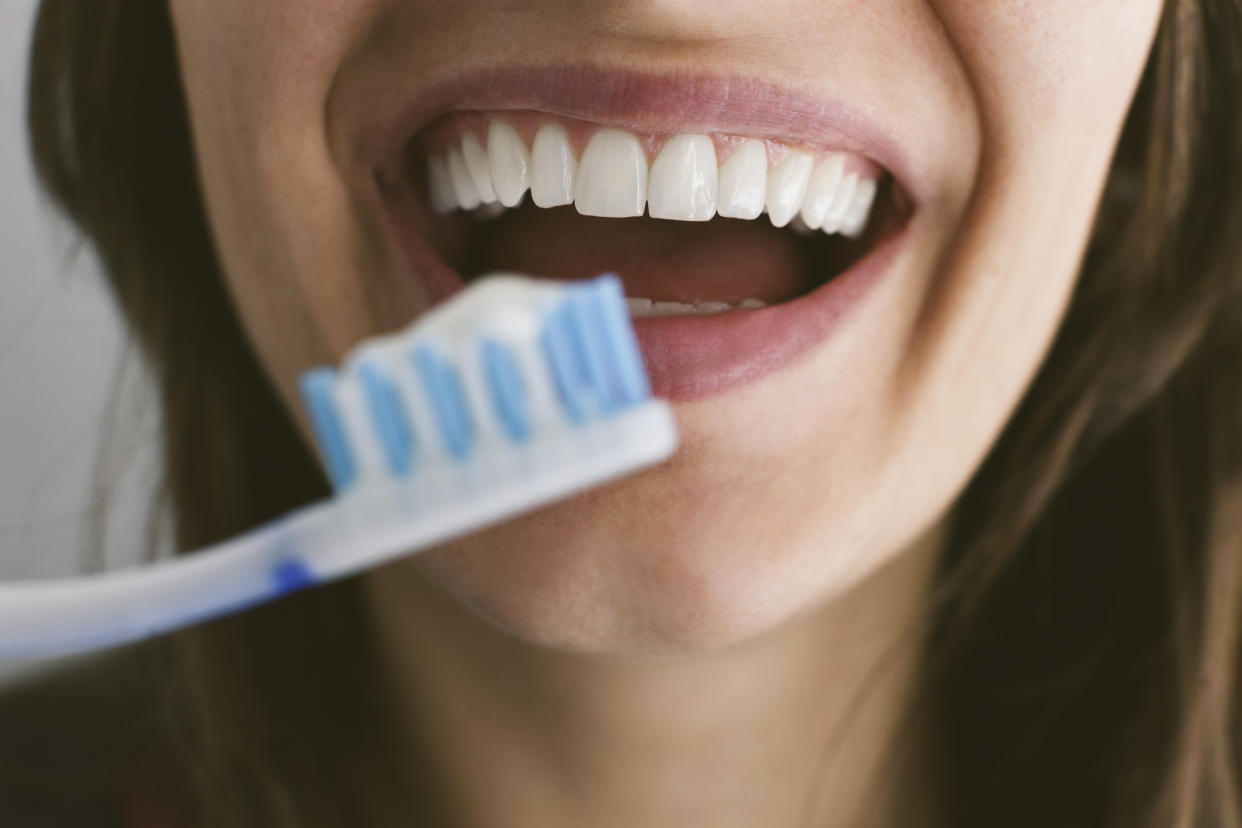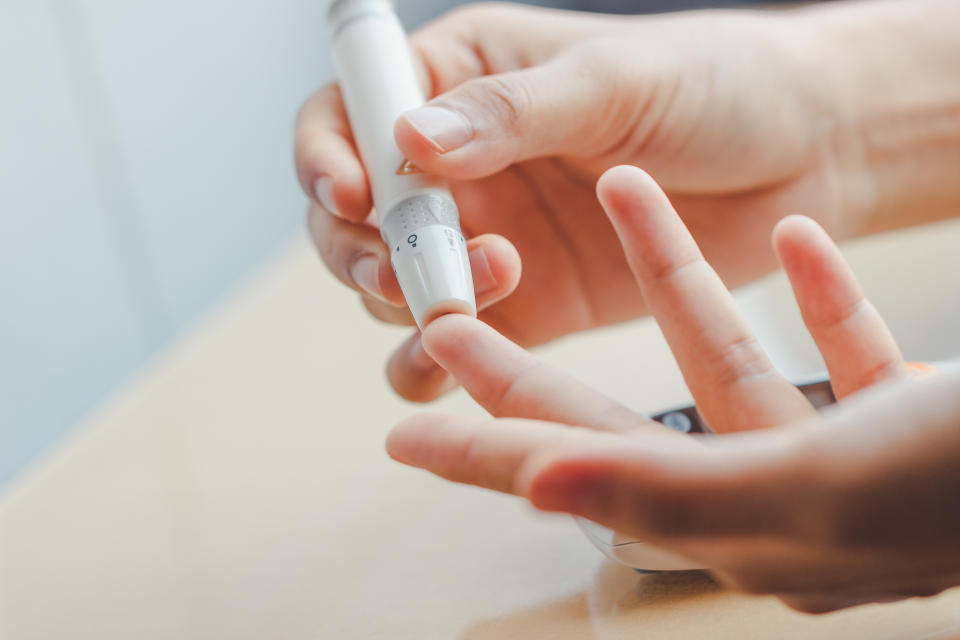Brush your teeth three times a day 'to ward off diabetes'

Brushing your teeth three times a day could ward off diabetes, research suggests.
While it may sound farfetched, oral hygiene has long been linked to good heart health.
Allowing teeth to decay is thought to trigger gum inflammation, with “swelling” also playing an “important role in the development of diabetes”.
Read more: Diabetes: the symptoms, treatment and everything else you need to know
To learn more, scientists from Seoul Hospital looked at the oral health of more than 188,000 people over 10 years.
They found those who brushed their teeth at least three times a day were 8% less likely to develop either type 1 or 2 diabetes.
Gum disease raised the risk by 9%, while having 15 or more missing teeth boosted the odds by 21%.
“Frequent tooth brushing may decrease the risk of new-onset diabetes, and the presence of periodontal [gum] disease and increased number of missing teeth may increase that risk,” the scientists wrote in the journal Diabetologia.
“Overall, improving oral hygiene may be associated with a decreased risk of occurrence of new-onset diabetes.”
Read more: Type 2 diabetics 'are 50% more likely to die prematurely'
Last year, 3.9 million people in the UK had been diagnosed with diabetes. Around 90% of patients have type 2.
In the US, 34.2 million had the condition that year, of whom just 1.6 million were type 1.
Type 2 diabetes occurs when the insulin made by the pancreas does not work properly or not enough is produced to effectively lower blood sugar levels. It is associated with carrying too much weight.
Type 1 diabetes is an autoimmune disorder that comes about when the body does not produce insulin.
Left untreated, both have been linked to heart disease, kidney damage, blindness and even limb amputations.

To better understand how oral health influences a person’s diabetes risk, the scientists looked at participants of the National Health Insurance System-Health Screening Cohort in Korea.
This collected information on the participants’ medical history and oral hygiene habits.
Overall, brushing teeth more than three times a day was linked to an 8% lower risk of diabetes, while gum disease and having many missing teeth raised the odds by 9% and 21%, respectively.
This remained true after the scientists adjusted for BMI, blood pressure, activity levels, smoking and alcohol consumption.
The results also varied according to the participants’ age.
Among those aged 51 or under, brushing teeth twice or three times a day lowered the risk of diabetes by 10% and 14%, respectively. This is compared to those who did so just once a day or not at all.
Gum disease raised the risk of the condition by 14% in this age group.
The younger participants with between one and seven missing teeth were 16% more at risk of diabetes.
Read more: Just two cups of filtered coffee a day could slash the risk of type 2 diabetes by 60%
In those aged 52 or older, no difference was found between those who brushed twice a day and those who did so just once or not at all.
Brushing at least three times a day, however, was linked to a 7% lower risk.
Gum disease also raised the older participants’ diabetes risk by 6%, while missing 15 or more teeth made them 34% more susceptible.
Oral health was found to particularly influence the women’s risk of diabetes.
The female participants who brushed their teeth three times a day were 15% less likely to develop diabetes, compared to a 5% risk reduction among the men.
Although unclear, poor oral hygiene may trigger the “invasion of oral bacteria and release of inflammatory mediators” that can result in insulin resistance.
A “driving factor that leads to type 2 diabetes”, this occurs when cells do not respond properly to insulin.
Tooth loss may also “provide easy access for the translocation of oral bacteria into the systemic circulation”.



